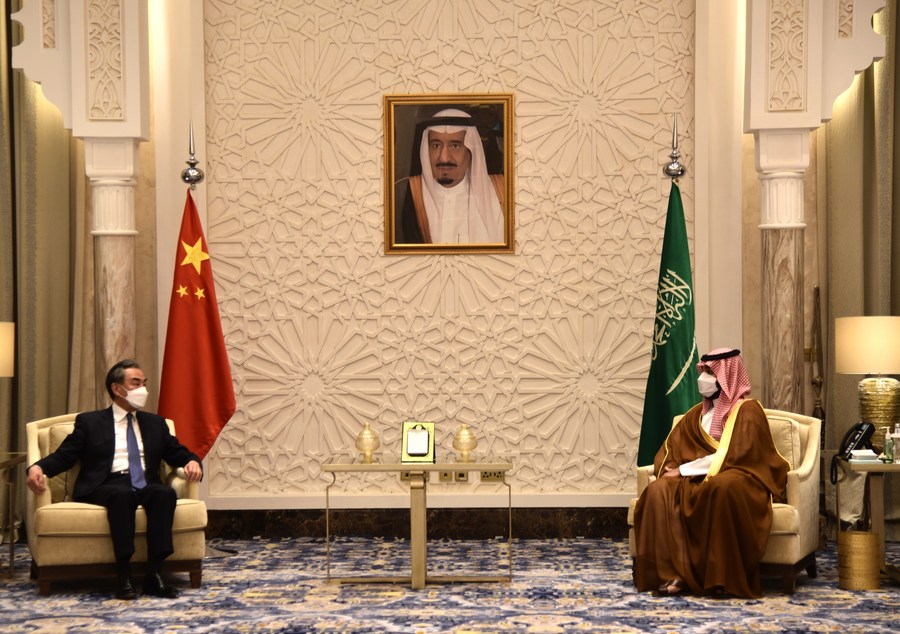China schmoozes with Saudi Arabia and other Middle Eastern powers
Beijing wants to play a bigger role in the Middle East and the region’s complicated geopolitics. It’s not just about oil: Saudi Arabia, for example, is supplying China with not just energy security, but also political cover for its policies in Xinjiang.

Chinese Foreign Minister Wáng Yì 王毅 has embarked on a weeklong tour of the Middle East, where he is set to visit six countries by March 30: Saudi Arabia, Turkey, Iran, the UAE, Bahrain, and Oman. While securing oil supply has historically been a primary goal of Chinese diplomacy in the region — and it remains important, with Saudi Aramco promising earlier this week that it would prioritize China’s energy security for the next 50 years — the real significance of this visit may be about politics.
“Saudi Arabia firmly supports China’s legitimate position on affairs related to Xinjiang and Hong Kong, opposes interference in China’s internal affairs under any pretext, and rejects the attempt by certain parties to sow dissent between China and the Islamic world,” Chinese state media reported, citing Saudi Crown Prince Mohammed bin Salman as he met with Wang Yi.
- Saudi Arabia, among other Middle Eastern countries, has signed on to previous joint statements to the UN supporting China’s positions on human rights.
- But the more explicit endorsement of China’s policies in Xinjiang from the country that describes itself as the “heartland of Islam” is significant, especially coming the same week that many Western nations issued coordinated condemnations of those same policies.
In Turkey, where some 50,000 Uyghur refugees live, Wang received a more tepid welcome, with Turkish Foreign Minister Mevlut Cavusoglu reportedly conveying Turkey’s “sensitivity and thoughts” about Uyghur Muslims.
- Turkey is depending on China for much of its COVID-19 vaccine supply, which worries many Uyghur activists, especially as the Turkish parliament is currently considering ratification of an extradition treaty with Beijing.
- Around 300 Uyghurs protested in Istanbul as Wang met with his Turkish counterpart in Ankara, Reuters reports.
In Iran, which Wang will visit next, China will have to strike a delicate balance of offering its support for Tehran without alienating Saudi Arabia, Iran’s archrival, the SCMP reports. Beijing has repeatedly urged the U.S. to “lift sanctions against Iran” and rejoin the Iran deal in recent months.
One other thing: Beijing to host Israel-Palestine talks?
The Chinese government plans to invite Israelis and Palestinians to hold talks in China, Wang Yi said, as cited by Dubai-based Al-Arabiya TV yesterday.
What does it mean? The likelihood of Israel-Palestine talks happening in China is extremely small. But as with other signals on Wang’s trip, this indicates that Beijing wants to play a bigger role in the Middle East and the region’s complicated geopolitics.
See also:
- China schmoozes with the Muslim world / The China Project (January 2020)
A year ago, as the Trump administration’s Middle East policies alienated and confused allies, enemies, and everyone else, China wasted no time in reassuring Muslim-majority nations that Beijing is a reliable partner. - China’s ‘social re-engineering’ of Uyghurs, explained by Darren Byler / The China Project (2019)
The China Project’s Xinjiang columnist, Darren Byler, gives his take on why Muslim countries have generally stayed silent, or even voiced support for Beijing’s policies toward Uyghurs.






